#extremely niche joke. but my thought process seeing this panel was like
Explore tagged Tumblr posts
Text

Phil Lester voice: They're Touching!!~
#extremely niche joke. but my thought process seeing this panel was like#I got genuinely excited about it#because they are touching and it's cute#and then I thought about phil making fun of him and d's fangirls by going ~they're touching~ every time they touched#in the old videos they were reacting to#anyway I'm living my cringe shipper life free of shame#but I do hear phil's voice in my head going 'they're touching!' every time I react to something like this now#liveblog#vnc#ID in alt text#the vanoé agenda#vnc spoilers#vnc 62.5
48 notes
·
View notes
Text
For real. I used to perform character cosplay at convention panels a couple years ago. I would dress as various TV cartoon villains, and do Q&A, answering questions of the audience/perform joke sketches and Japanese style host cafe stuff, acting however accurately as I could to that character's persona in that role, exactly like those costumed Disney theme park mascots do.
And what consisted of a good 46% of my interactions, was dealing with people whom not only religiously ascribed to the realm of any viral popular fanart/fanfics on the internet lore, often wayyyy wayy more knowledgeable on these, rather than the details, even not so obscure details, like, the basic show premise and the plot-than the lore of the actual TV show's source material, or the trending new Netflix show or book series they were cross referencing it with-
-But even more so people who just had this entire fanfic/self insert universe all of their own, deeply personal, only be known unto them, or whatever small fan base they share, and would EXPECT ME TO KNOW, as if I HAD read about it, not just me, as in performer, in real life during my leisure. But as in the CHARACTER I was roleplaying. They expect the PRE ESTABLISHED FICTIONAL CHARACTER. INVENTED ORIGINALLY BY SOMEONE ELSE, NOT IN THIS CONVENTION ROOM. DEVELOPED BY AND FOR MAINLY A FACELESS MAJOR CORPORATION, TO CHIEFLY JUST MASS MARKET AND SELL AS MERCH, WITH AN ESTABLISHED LORE OF ITS VERY OWN, FOR YEARS. To have mind reading abilities, and a total investment in this unknown, completely thought out, niche half baked epic of a personal universe of theirs, and self made avatars, who do not exist, on the show. There is zero wrong with making fanon OCs, it is very creatively beneficial and basically 89% of all humanity's fiction and media starts off that way. But. This is not how things work, in the real world or in the fictional one. I do not have the capacity to know another inner psyche's unique take on the lore, and, I do not have the spoons or lack of conceptual purity/indifference to believe ALL AND ANY MEDIA equally can or should share in crossovers, or canonical accuracy. Not all art is all taking place in the same universe. But some people not only enjoy this idea, it's their entire identity or personal niche religion. (See Sonichu for the most worst, darkest and cringiest example.)
In fiction even with entities who can breach different realities/timelines, or break the fourth wall/can be aware of and reference different media, such as Robin William's Aladdin genie, there comes a limit to what they do and know. And while it's very fun or cathartic, for some people, to make JOKES and PARODIES about say, Rick Sanchez being in the same timeline as The Simpsons, or Halo or Portal"s GLADOS somehow being in My Little Pony, this does not make ANY SENSE when taking canon into mind and it should be obvious why. It should be obvious why Scar from the Lion King doesn't know who Huggy Wuggy or Cthulhu is. Or why Optimus Prime doesn't understand whom Darth Vader is, despite being from a similar sci Fi adventure /80s young boy to middle aged adult male geared nostalgia toy market.
-what sickens me most though? Disturbingly this actually is a shockingly more common problem among more grown ass adults as opposed to young kids or very awkward teenagers, who cannot process logic or why things have their own separate categories yet. Especially adult men. They just do not care how sensible it is. And if they are a teen girl, they react usually more polite but, heaven help you, if they have a romance ship no matter WHO OR WHAT IT IS, or how toxic or ooc. You better. Be as. On board. As they. Especially if she has follwers. Or you will either be force doxxed for 50 years, die of a uncertain mysterious death, or be the cause behind this mentally unstable young lady's presumable own death if you aren't extremely, extremely CAREFUL. 😮💨
I just. Yeah. I love being a fan and part of various fandoms, but fans themselves can be very gd stupid.
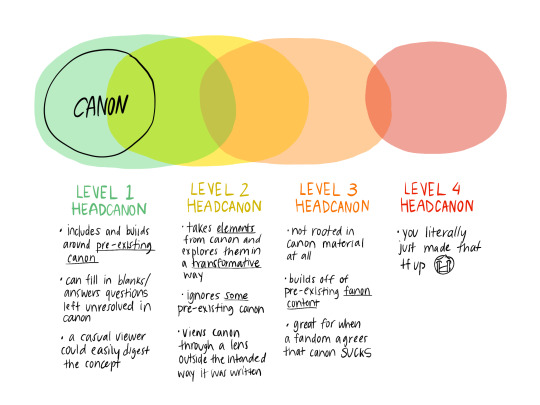
it came to my realization that 99% of my fandom related headaches would be cured if everyone understood this
116K notes
·
View notes
Text
On the Internet
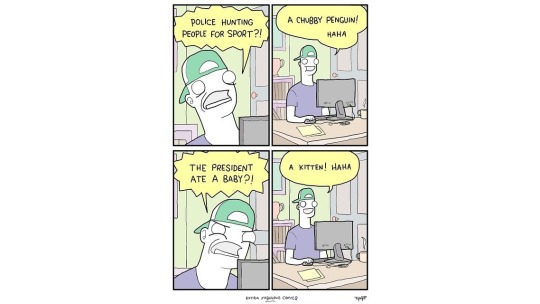
Taken from, and thus generously funded by, my Patreon. The above image via ExtraFabulousComics.
Do you have a flashlight nearby? A lamp, or other light source? Keep it to hand, it might become relevant for something, something I’d like to demonstrate later. The demonstration is simple and entirely voluntary, the flashlight is not essential. It works just as well as a thought experiment in your head.
Meanwhile, I’m going to write about the internet on the internet. Because that’s what we all do these days, isn’t it?
---
I still remember the excitement of our first explorations online. It was a kind of hidden, secret space of unknown dimensions when we found it as young adults. A weird sort of Narnia. A modem meant you could open this door to an entirely different place full of entirely different people obeying entirely different rules. You had to find ways of telling one another about what you’d found this week, either the next time you were together in person, via an email or, God forbid, by printing out a webpage. Twenty-five years ago, the internet was a collection of imperfect search engines (crawlers) taking you to out-of-the-way websites that were as likely to have been made by someone just like you as they were to belong to some major company or organisation. Its mess was egalitarian. It was a decentralised place full of curious corners and sudden surprises. It wasn’t somewhere we logged on to with an expectation of finding the familiar. It was a place of discovery.
It wasn’t simply that the tech wasn’t as good as it is nowadays. That much is obvious. It was the fumbling newness of the place. It was a primordial soup, we were all blobs and we blobbed around together, testing out the water.
It was a tremendously international space. It was easy to stumble across websites in other languages, to find places that weren’t for you, that were never created with you in mind, and at the very edges of these places their owners and their users might just blend together. Spill over, even. Everyone was from everywhere and they were all mingling, uncontrolled. It was liberating. It was mind-expanding.
The internet was exciting, it was new, it was unfamiliar. It was a place to learn. It was a place without an agenda.
It was also a place to be different. Niche interests found their audiences and young people could be united by what they enjoyed, not marginalised. There was no need to fit in when the place didn’t even fit together properly. For those of us bullied, bored, or worse in tiny homogenous hometowns, isolated or upset by the toxic social dynamics and popularity contests that school can create, it offered little judgement about what you should want or who you should be. It was a place to be genuine.
I still remember the end of the 1990s, too. It was a decade of growth and change not just for a young generation, but for the wider world we were learning about. There was a peace deal in Northern Ireland, there was optimism in the media and there was a coming millennium that was supposed to be defined by technology and communication, the internet at its forefront. I was not a young man who could identify with very much of this optimism, but I was at least a young man looking forward to change, who could be accepted as who I was on the internet and who could be excited about what it represented. I’d never tried to be anyone else, even though being different rarely works out when you’re young, but now I knew for sure that I didn’t need to.
As my friends and I grew, so did the internet, and it became a place where we could share more about ourselves, where we could play together and where we found a bunch of ways of keeping in touch whenever we were apart. It became a tool to help me work, that kickstarted my career as a writer, as well as an ever-widening window on the world. It wasn’t yet too corporate, its websites and its tools not yet too monolithic.
I remember some of that early sharing. I remember talking to total strangers, a world away, about some part of my life or theirs. I remember talking to one internet friend of many years, who I never met, about British and American spelling. And about spelling in general. I remember they told me they weren’t sure how to spell a particular word and I said they could look it up in but a moment, since they were online there and then. “I can’t be bothered,” they replied, and that frustrated me so much.
The 90s passed and on September 11th 2001 whatever vision there was for the coming century was erased. The course of world events shifted immediately and dramatically. Never before had mass murder been so visible and so immediate. I remember talking not about how different the world was going to be, but that we had no idea how big a difference this would even make. In a very short space of time, it felt as if the world became not only so much more cruel and so much more cynical, but also so much more divided. I remember the weeks and months after those terror attacks as being my first experience of seeing people sharply divided in their politics, divided enough to be extremely angry, extremely offended, by the many suggestions of what should be done next. It set the scene.
As the decade continued, technology and communication certainly did change us. More of us were using the internet not only to talk, but for more and more of our everyday tasks. We were also sharing ourselves, too, in ways more personal and profound, and there was so much to know. I read a blog post by a Black woman from the American South describing the ways she had to bring up her son to interact with the wider world, how angry he was about it, how unfair it all was. I read updates from those caught in the civil war in Myanmar, talking about what they claimed the news didn’t show. I read about the realities of the rapid growth in Dubai, the working conditions and pollution. I read diary entries by people surviving the aftermath of Hurricane Katrina, weeks without power and wondering when help would come. I read about the world in a way I’d never been able to before.
More than ever, the internet was a library of lives.

The first trip overseas I took by myself was all planned, booked and executed with the help of the internet. I flew to Chicago, in the United States, and I stayed in the most average hotel in the most average neighbourhood and it was wonderful. I heard real cicadas for the first time and walked through concrete valleys between towering skyscrapers that my tiny mind couldn’t process. In the evenings, I watched a plethora of American news, which was only ever about America, and that frustrated me so much.
The first interview I ever conducted with someone who wasn’t making a video game was with the writer Mil Millington. The interviews I really wanted to do were about people, their experiences, what they liked and why they do the things they do. Mil Millington was the perfect subject because we had both written about games, we both understood the reach of the internet and we were both interested in what the future of this medium would be. He had recently scored a book deal and written his first novel, Things My Girlfriend and I Have Argued About, based on his semi-autobiographical, tongue-in-cheek blog of the same name, listing comic domestic disagreements. I asked him what it was like to share all of his personal life online and he told me that, actually, he didn’t:
“I'm, honestly, almost obsessively private. It's just the way I write that, for some reason, if I say, 'Margret won't let me watch a film in peace,' causes people to think, 'My God! Mil's laying his whole life bare!'”
And then I realised that he had, of course, chosen to share all the things that he had. And carefully. It didn’t mean that those things were less honest, less real or less interesting, but he had been doing what all of us writers do: picking his words and his moments. We should all get to share on our own terms.
I liked his honesty. He wasn’t trying to prop up any persona.
---
A little after this time, I was asked on a date by a conservative American woman who I met in my first year at university in London. We saw each other a few times and stayed in touch when she returned to California. A couple of years later, the American Vice Presidential candidate Sarah Palin spoke about “death panels” run by Britain’s National Health Service. Online, I expressed my annoyance and anger both at Palin just making things up, as well as at the volume of people who seemed to simply accept her words. My former date said that Palin was allowed to “express her opinion” and I didn’t know how to begin to explain, to an adult in her mid 20s, the difference between fact and opinion, or that she could check such things in a moment, since she was online. That frustrated me so much.
This discussion played out over a relatively new website called Facebook, which had become an invaluable way to connect with my fellow students. I had feared being alone at university, lost in a big city, but the opposite had happened. As soon as we all finished our first year of studies and were hurried out of our student residences, we scattered across the capital and the closeness I had taken for granted was suddenly lost. But Facebook became a directory of friendship, another library of lives. In its early days, I made jokes about people oversharing, or using the site to attract attention, but this wasn’t any different to how some of us might behave anywhere else. It wasn’t such a big deal. That’s just humans.
And anyway, I like to share. My whole life, I’ve enjoyed sharing things I think are important because I feel like it helps me make genuine connections, express myself and feel useful. I saw the internet becoming another way of doing this, another way to be genuine. The younger me had played in bands and held dreams of reaching other people through music, in awe of those moments when an audience sings an artist’s lyrics back to them. I still wanted that, that connection, or some version of it.
On the ever-growing internet, we could all share ourselves more. It could become a new medium for acceptance and understanding. What a glorious future it promised.
---
In time, I adopted all of the social media platforms that I use because I enjoy human connection and I think one of the fundamental traits of people is that they can be so interesting. They do stuff, they make things, they go places, they inspire and they pull humour out of the most difficult of situations like a conjurer tugging an elephant from a beanie. I’d like to be able to do those things. Some days I can barely make a pancake.
Social media allowed me to make and share even more, and now I was sharing things with two people at dinner, ten people at a party or a hundred people online. The number mattered less than the creation’s ability to connect, because it all helped me figure people out and it helped me figure myself out. It helped me figure everything out so that, perhaps one day, I might also learn the trick that lets you tug an elephant out of a beanie. I would be able to say to people “Ah yes, you start with the trunk,” or “Surprisingly, you pull from the tail.” Then they could pass that on. Social media seemed particularly good for this, a way for us to all enrich one another.
In 2008, a series of devastating terrorist attacks erupted across Mumbai. Many of the events were documented in real-time by both journalists and locals using Twitter, which made the site seem to me to be an invaluable new perspective on current events. By the start of the next decade, the Arab Spring saw a broad uprising across North Africa, with thousands of people united in protest by the unifying power of social media. It felt like these tools could change our world forever.
Some other things happened as that decade wound down.
A woman on Twitter made a poor joke about AIDS and Africa before boarding a flight, only to find that, by the time she had landed, her words had been shared around the world many millions of times. A woman in England was caught on camera putting a cat in a bin, the footage of which went viral and received such an overwhelmingly furious reaction that one national newspaper asked, only half-joking, if she was the most evil woman in Britain. These events were shared, discussed and dissected with a comparable passion and level of investment as the terrorist attacks and the Arab Spring. On the internet, a cat in a bin was becoming as important as terrorists in a hotel.
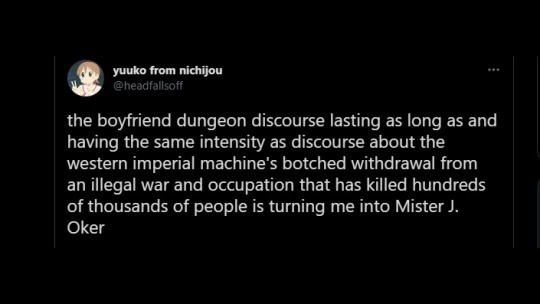
I flexed some cynical opinions. We all had opinions by then (though still not the same as facts), because it was increasingly difficult not to get swept up in things like these as and when they happened. They were everywhere, echoed and repeated, with a kind of mentality of momentum. Countless people changed their profile pictures to something green in support of protesters in Iran, or added a flag to support victims of terror in France. They signed internet petitions demanding Something Be Done, though it wasn’t always clear where these petitions would be delivered or how they would compel someone to act. None of these protesters or victims were in any way saved, protected or enabled by a person on the other side of the planet clicking their mouse like this, but if a million other people did it, those metrics created a validity of their own.
I think I remember the late 2000s as the time that I really began to feel different about these things. But by then, I was too bought in. It had already gone from a habit to a dependency.
Year by year, the internet had become less egalitarian. Monolithic sites and spaces were increasingly the center of the experience, whether hubs like MSN and Yahoo, social media sites like Facebook or Twitter, or popular news outlets. We found ourselves in the same places, over and over, and we relied on these for our new discoveries. While social media in particular pitched itself as something that put us all on the same level, behind the scenes levers were already being pulled to shape and to manipulate what was shown and shared.
(That’s okay, people told me. Turn on this feature, or adjust these options, and you get to pull your own levers. That’ll undo everything. You still get to share on your own terms.)
These sites had swelled to envelop us, going from making themselves exciting to making themselves essential. We no longer went online, we were online, always, and we left more and more of ourselves there even when we were away from our screens. Social media allowed you to collect everything together, becoming a place where you could simultaneously read updates from your friends, your parents, Leonardo Di Caprio, the Prime Minister, your favourite newspaper and your favourite sports team. All in a moment and all competing for your attention. Sites like Google and YouTube started to track and understand the preferences of their users, delivering to them more of what they wanted, working hard to grab and to keep their attention. You liked that dog, that topic, that politician? Here’s another.
Here’s another, again.
I was pulling levers all the time, frantically now, like someone operating locks and gates to try and dam an ever more overwhelming flow. My social media sites had changed from something that I used to something I had to manage. Not only were we all carefully curating who we broadcast to and when, lest we offend an employer or shock a relative, we also found ourselves trying to coordinate and customise them, because if we didn’t they would do this for us. They began to choose what to show us, based on what they believed we cared about, they began to offer us things, based on who they believed we were. They even began to mess with time, giving us information and updates out of chronological order. All of these were changes we often had to undo or at least be mindful of, if we even knew about them. If we wanted to. And if we knew how.
If we didn’t, our reality might shift.
---
I still remember the excitement of our first explorations online. My first favourite website was Snopes, which was then a collection of myths and urban legends, most of them debunked. In the late 90s, bullshit chainletter emails would bounce around the internet with stories about how some Russian scientists had drilled their way to hell, or how a new computer virus had come out, or how Coca Cola dissolved human teeth. Sometimes, the strangest of stories really were true, or at least partially so, but most of them were trash. Thanks to Snopes, you could check such things in a moment. I loved that about the internet.

On September 11th 2001, almost twenty years ago now, it was difficult to disagree about what we saw happening right in front of our eyes. Nevertheless, there were a few people afterward who insisted that a plane had not hit the Pentagon, that the towers had been deliberately demolished, that some more mysterious sequence of events had transpired. They lurked in the darkest corners of the internet, much as they had always existed on any other margins in any other mediums. The rest of us could get on with our lives.
I grew up playing games and then, later, I became someone who analysed, critiqued and even designed them. One of the most powerful and important things I learned through games is that so much in life is based around systems and the longer a system is around for, the better we become at manipulating it. When a game has been around for a long time, we find many different ways to play it and sometimes we have to adjust the rules of the game to account for this. The rules for chess that we have today have seen many adjustments and revisions. The same is true for football. It is also true for our laws and for our systems of government. We have to modify these things in part because times change, but also in part because they are being abused and exploited, subverted in ways their designers never imagined.
Or simply used as optimally as possible.
It’s 2021 and the internet monoliths that we have begun to take for granted, that have surged like the rising oceans to engulf our lives and to carry us along their currents, are constantly being used in ways their designers never imagined. Two years ago, we thought the biggest problem we had with social media and internet monoliths was their subversion to manipulate elections, with great armies of bots and fake profiles being created and directed faster than the people who owned social media sites being able to prevent this. This presence could bring amplification and validity to anyone or to anything. “Learn the algorithm,” was the key to success online. Use a site or social media platform in a particular way and it will elevate you further. Elevate your work. Or your truth. Or just you.
Now, more than a year and a half into a pandemic that defines our generation, the areas of the internet with which we’ve become most familiar and most comfortable, those which we began to pour our lives and identity into, are not only places where elections were subverted, they’re places where the difference between life and death are considered a matter of opinion, where science and fact can be openly ridiculed, where conspiracies about September 11th are tiny in comparison. For some time now they’ve already been well-worn battlefields, public arenas within which opinion and force of will often carry more weight than evidence and reason, but now the consequences of doubling down on a belief are undeniably the difference between living and dying.
More important, for some people, is the difference between right and wrong. Not so much being right, but being seen being right, can give you validity, clout, value. I think we’ve reached the point where dying while being seen as right can matter more than living and admitting a mistake.
The flow of the internet, all those locks and gates opened by algorithms or AI or other people’s decisions that may simply have been motivated by a desire to give us what we like, have made it more difficult than ever to find things that go against the current, or to grasp something we can be sure is objective or straightforward.
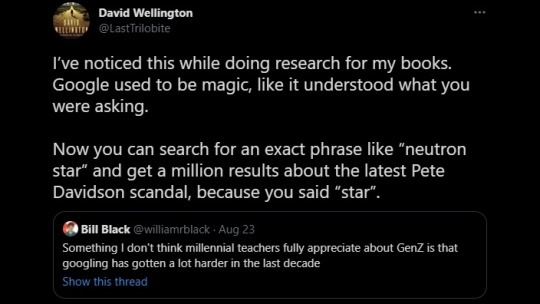
One part of me believes that we can no longer look things up in a moment any more, because we have to second-guess every other thing we find. As a journalist and researcher, I never feel secure with what I find on the internet now and I dig, I verify and I compare, still coming away unsure, often worried I will publish something glaringly incorrect. A different part of me, a more dramatic part, sometimes wonders which things are even real.
I suppose anything is real if you can get away with it. If nobody ever notices.
---
There’s another aspect to all this, the aspect that makes me the most uncomfortable. The aspect I least enjoy discussing, but which I have to if I can fully explain myself.
Living alongside the internet, I’ve watched as some of us pull all those levers simply to control the flow as best we can, to keep ourselves afloat, but others have viewed this experience differently. They’ve seen it as a challenge, as another system they can manipulate. It’s an opportunity for them to choose how they present themselves. The more levers they pull, the greater their ability to do so. The more time they invest, the greater the result.
If you take your flashlight, lamp or light source and point it toward an object, you can easily affect the size and the shape of the shadows it will cast. Under your control, those shadows can lengthen or deepen, they can sweep and distort. A light up close can cast a gigantic shadow across a far wall, perhaps a sharp one or perhaps one fuzzy and undefined. Try it. See what you can make. The more you do it, the more tricks you can learn.
All of us try to present our best selves and all of us have our different selves, too. Forty years before I ever went online, the sociologist Erving Goffman published The Presentation of Self in Everyday Life, a book about how we behave differently in different contexts. It’s natural for us to speak to our family in a different way to how we speak to our best friend, or to our colleagues, or to a crowd we might be addressing in a speech. It’s not necessarily disingenuous, it’s merely a part of the human experience. But impression management, as Goffman called it, is also a matter of degrees. Some people are more invested than others. If given the tools to perform more effective impression management, more levers they can pull, they will engage even further.

I have flexed a few cynical opinions in my life (at least as many as three, the stats suggest) but, at the same time, I think I have to admit that I have also been very naïve about people. I tend to take many of them on face value and assume they are genuine. Many of us are, perhaps even most of us. But I’ve come to know both that this isn’t always the case and that, given the opportunity, some people will use every tool at their disposal to shape a false version of themselves. We’ve found ourselves in an era where this is more possible than ever. It’s no longer simply within the purview of politicians and PR firms, it’s within reach of every one of us and all we need to do is put in the time and energy. The reward can be ever greater popularity, ever more validation
And I’m so tired of seeing this.
Over the past half decade or so, I have seen the internet and its many systems gamed more than ever. Gamed for political gain, gamed for personal gain and gamed to create images, personalities and that god-awful golem of hollow and lifeless artifice that is brand. Now a person can be a product, a new kind of commodity in this ever more opaque ecosystem.
The nausea and unhappiness I feel from all this is more than the simple declaration that I’m not a brand, I’m a person. It’s the discovery that other people, sometimes people I’ve known, really are a brand now. Their time, their energy, their life is now invested in shaping and maintaining that image, that brand, perhaps even at the expense of other pursuits. And with the right manipulations, the right tugging of the correct levers, they can perpetuate that, build that and further gain the affirmations and validations they need to prove to themselves that what they have created is as solid and as true and as real as anything else. And how would we know any different?
The ocean is not so far from my home. It’s not unusual to walk the beach or the seawall and see people engaged in impromptu photoshoots, dressed in their very best, expertly presented and shot with long lenses. A friend told me that most of these shoots are for the purpose of enriching dating profiles, that there’s an increasing feeling of expectation, a sense that everyone must present their very best selves, simply because everyone else now does so. To be on a dating site is to feel engaged in an ever-escalating competition for time and attention, to need to package oneself as the best possible product.
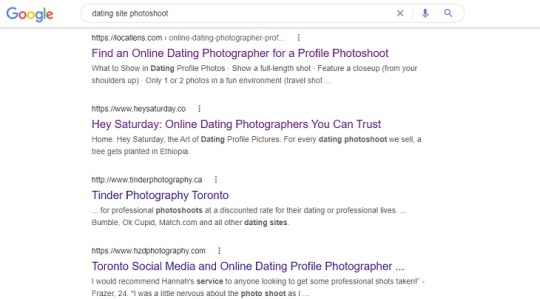
I don’t at all object to the idea of dating sites, but I could never get comfortable with them and I used to feel like I was browsing a human meat market, that it was all too easy for me to make judgements about people I didn’t know and then cast them aside. I felt, again, like people had become products and this was a system and a process I did not want to be part of. You can game it, people tried to tell me. There are ways to make it work better for you, it just takes a little time. I didn’t want to know.
The more time you spend trying to engage with things that aren’t genuine, the less you have for what is real.
When I use the internet these days it’s with an increasing sense of discomfort and disquiet. I find myself already on the lookout for the artificial. I second-guess people as much as I do information. I’m all too aware of the constructed persona and the deliberate framing, of that angling of a light to cast a particular shadow. In a few cases, this isn’t an abstract concern and social media in particular can be a place where I watch people I know are starkly different to the image they project be celebrated for the false façade they maintain, a façade that can be further reinforced by popularity and prominence. I see harmful and unhealthy people championed even in spite of their actions, because they have managed to engineer support and validation, or using the popularity and affirmation they have gained to push opinion over fact. The disingenuous and the distorted tie together like a greasy braid, each one reinforcing the other, and it’s no wonder falsehoods can spread so far, whether false representations or false information. I would say that sometimes I almost feel like I’m back at school, amongst the same gossip and garbage, but this is far worse than any of the toxic social dynamics and popularity contests that school ever created, and now it comes with measurable metrics in the form of likes, follows, retweets or subscriptions.
I’m sure, at this point, this is a common experience and common concern for most of us, and we are each finding our own ways to handle it.
Or not. For me, the experience is deeply unpleasant.
While drafting this I idly wondered if we could somehow develop a new version of Snopes for human beings. A demystifier of people, something that reveals each person’s private Picture of Dorian Gray, which grows ever more warped as they reinforce their persona ever more. But I’m sure even that would be gamed and subverted before too long.
I'm so, so tired of trying to work out who is real.
---
The internet monoliths I move between in my daily life all have one thing in common. Google, Twitch, Twitter, Instagram, YouTube, Tumblr, Facebook, Patreon and so many others are all based in the same place: the United States. They are towering. They overwhelm the rest of the internet. The levers that many of these pull, controlling currents and flow, are being operated in the United States. The politics, existential crises and cultural interests of that country are disproportionately represented and, while I care very much about the United States, I also want to hear about the rest of the world. I want to hear about where I live, and yet even that feels like it comes second. Yes, I am pulling all the levers that are supposed to make this happen. No, it isn’t entirely successful. I am using a paddle against a tsunami.
Once the bias is there, the snowball effect perpetuates. So often, whether I choose to or not, I am in that motel room watching a plethora of American news again, or its modern equivalent. It frustrates me so much. Most of us Westerners essentially live in America some of the time now, if we spend any period online. That’s where our presence and our attention are pointed.
Before publishing this essay, I changed every mention of “torch” to “flashlight” because I felt I had to cater to an internet that sees the first word only as a burning chunk of wood, not as a British battery-powered light source.
The internet doesn’t feel like the world any more. It hasn’t for a long time.
---
I can’t abandon the internet of today. I need it for work. I need it to promote the things I create. I need it to keep in touch with people. I’m not different or special, only someone too bought in as well, my use also going from a habit to a dependency. But it has almost entirely stopped being a place of delight and discovery. It has lost any sense of being egalitarian. So much less is new, so much less is unfamiliar. So much more has an agenda.
Algorithms, metrics and social media have quantified and gamified everything, encouraging competitiveness and narcissism. Public spaces have become arenas and arenas encourage performance. In an attention economy, the outrageous and the overblown mean a cat in a bin can have the same profile and presence as terrorists in a hotel. In spaces that now mix our friends, our parents, Leonardo Di Caprio, the Prime Minister, our favourite newspapers and our favourite sports teams, people we know and love are elevated or relegated according to how interesting an algorithm has decided they are, pushing them to the fore or pulling them from your view. “People on Twitter are the first to know,” says the social network that prides itself on immediacy more than integrity or fact-checking. Misinformation abounds. As the line between person and brand has smudged between all recognition, corporations insert themselves into and between everything else we try to examine. Surrounded by banner ads, the conflicts of polarised culture generate enormous revenue for monolithic American tech companies. As we fight, push our narratives, construct our personas or compete in the race to prove we are the most woke, we all make @Jack richer, or provide Zuck with more of our personal data.
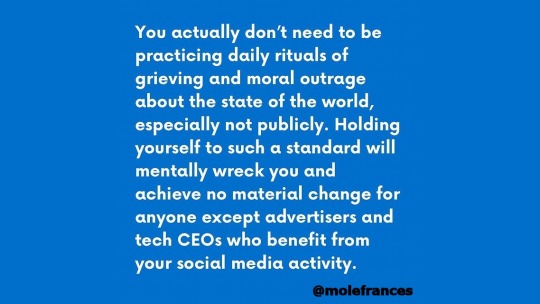
I also find myself reminded of what Octavia Butler called “simple peck-order bullying,” the hierarchical behaviour where people want to, and now can, elevate themselves above others, according to identities they've built for themselves, to push their ideas, push their image, push their sense of superiority or push their opinions so hard that they can reshape them into facts. Anything is possible with enough pulling of enough levers. And now more people have more of those levers. And some of them love to pull and then push, pull and then push.
I don’t like what the internet has turned into, nor what it has turned people into.
So what now?
---
This was an essay inspired by an essay, inspired by an essay, which is always how it goes. Creativity is theft and anyone who says otherwise is only trying to distract you as they secretly shake you down. The eternal question that writers (or anyone creative) is supposed to dread is “Where do you get your ideas?” Because we aren’t supposed to know. But we do know. We get them from everyone else. We thieve them.
Ideas are pickpocketed from the people we pass in twisting evening alleyways, during the briefest moments of darkness and distraction. They’re caught with nets as they flutter with all the freedom of sweet springtime naivete. They’re spied upon from tremendous distances through the jealous lenses of sparkling telescopes. Nothing is truly ours and anyone wringing their words into a desperate defence of some unique capacity for originality ex nihilo is either deceptive or deluded.
(Avoid them. You’re likely their next target.)
This essay was heavily inspired by Lucy Bellwood reflecting on Nicole Brinkley. Both have written nuanced examinations of social media (focusing on Twitter) that I think you should make the time to read, but I’ll try and sum up the main thing I have taken from their writing in one line:
Social media is extremely bad, in a multitude of ways and for many complex reasons, and it is okay to leave it.
This is in so small part my interpretation, coloured by a particular belief I hold, that being that social media is extremely bad, in a multitude of ways and for many complex reasons, and it is okay to leave it. You can probably see why I approve.
There’s more to it than that. Brinkley talks about Twitter essentially breaking the way the Young Adult literature scene works, which to me is one facet of a dangerously seductive diamond that repeats many different stories of damage done by how we’ve used and gamed the internet. Her wonderful conclusion is that “These days it’s okay to not be sure what Twitter is for. We can stop going there until we figure it out.” And I so desperately wish I could stop going on the internet until I could figure out what it is for now, too. I wish it wasn’t essential. But it is, broken as it may be, breaking things as it may be.
While I don’t think leaving it is an option for me, I am using so much of it less. I have to. Social media, a place where I am shown arguments and controversy over the lives of people I care about, has become somewhere for me to hurriedly hurl out a quick update or two before I flee, escaping before I come across something, or even someone, that will make me sad. Any search box is a cause for scepticism, prompting me to analyse the results it gives and try a dozen different ways to find the same thing, just in case. Even Snopes is now a running commentary on the (American) news cycle. The best I can do whenever I think something fundamental to our society is unhealthy is to participate in that thing as little as possible. I know this limits my reach, limits my relevance and limits my success, but I also know that this makes me less unhappy and allows me to continue to feel genuine. Like I am still myself. Like I am still real. It may be apparent that my mental health has taken a few hits over the last couple of years. It doesn’t need to take any more.
I am not only unsure what Twitter is for, I am unsure what the whole internet is for.
---
There is no conclusion to this essay. It is supposed to be six thousand words of open-ended reflection. The past year or so has sometimes been a huge struggle for me and it really is true that some days I can barely make a pancake. Work has been difficult, writing has been difficult and maintaining regular Patreon updates has been difficult, with this piece being a huge challenge to finish. I think I’ve tried to make the best of things, as well as present an honest but still positive face to the world. I have piles of tasks to get through and I tackle what I can, with what feels like so much competing for my attention. At the same time, I can’t opt out of the systems I live and work inside of, much as I can’t stop paying rent or putting food in my mouth, because individuals can't kick a habit society has become dependent upon. I think the best thing I can do right now is be truthful about all that, try to remain as genuine as I can and continue to step away from what makes me uncomfortable, giving myself some distance from the things that make me unhappy.
That doesn’t mean I’m disappearing (I’m still checking in on social media, streaming on Twitch and so on), nor does it mean this change or this philosophy is forever, nor does it mean that things can’t improve. But it does mean I’m changing a few things about myself, my habits and my preferences. And it does mean I have a working, temporary, if unsatisfactory answer to the question “So what now?”
It is: “We’ll see.”
---
A big thanks to my Patreon community for the links I’m adding here, post-publication.
The first is How sex censorship killed the internet we love, on Endgadget, about controlling the internet in all sorts of ways and about what might be considered explicit (apparently a condom might be explicit).
Then there’s The internet Is Rotting, from the Atlantic, about bits of the internet that are disappearing and the loss of information that comes with it, as well as information that is overwritten and altered. We are keeping less than you might think.
Finally, The web began dying in 2014, here’s how, by André Staltz, talks about the growing prominence of big corporations (all American), what their priorities are, and what online things (services) they may bring to you.
5 notes
·
View notes